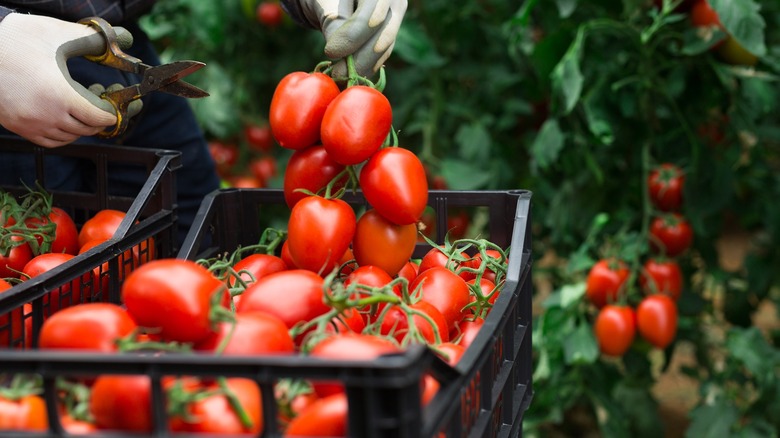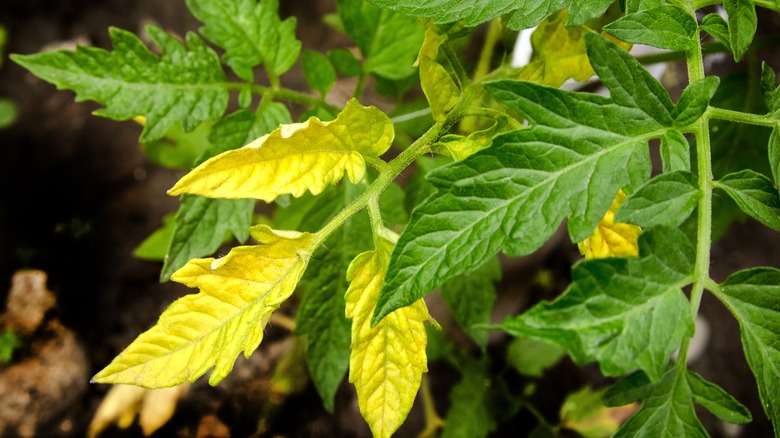Why This Simple Trick For Sweeter Tomatoes Might Not Work In Your Garden
Nothing beats the taste of a juicy tomato in a bright crunchy salad on a hot summer day, and the best-tasting tomatoes are the ones that are homegrown — at least usually. The main problem with garden tomatoes is that while they are typically sweet and flavorful, there are some years that it seems the tomatoes are just bland for no evident reason. Because every gardener agrees that flavorful tomatoes are better than bland ones, there are plenty of hacks circulating online for different ways to make your tomatoes sweeter. The only problem is that many of these hacks only work in specific circumstances, and this is especially true of one particularly popular tomato sweetening trick: Epsom salt.
Epsom salt (not to be confused with table salt) is an inedible compound made of magnesium and sulfur which is often used in warm baths to treat aches and pains. Magnesium is a nutrient that is important for the health and growth of tomato fruits, which is why some gardeners recommend adding Epsom salt to the soil around your tomato plants to make them grow stronger and taste sweeter. However, if your soil already has enough magnesium and isn't deficient in this micronutrient, adding Epsom salt probably won't make much of a difference in the quality of your tomatoes.
How to know if your garden will benefit from Epsom salt
So, before you add Epsom salt to your soil, you should first make sure that your garden will actually benefit from the extra magnesium. One way to do this is to check your plants for signs of a magnesium deficiency. In tomato plants, a magnesium deficiency often appears as leaves with blotchy yellow patches (or simply lighter green areas) and dark green veins. Plants with an extreme magnesium deficiency may even start developing purple spots.
However, because there are many reasons why the leaves of your plants could start turning yellow, it's a good idea to get a soil test done to make sure magnesium is really the culprit. If it is magnesium that your soil is missing, then you can go ahead and add some Epsom salt and see if the flavor of your tomatoes improves. If magnesium is not the culprit and your soil is lacking in other essential nutrients like nitrogen, phosphorus, and potassium, then you will need to buy a more complete fertilizer to solve your bland tomato problem.
If your garden soil is not lacking in any nutrients and your tomatoes still aren't tasting that great, then you can look at other possible problems. For example, if your tomatoes are hollow inside and not very juicy, the problem could be a lack of pollination, excess nitrogen, or pests.

